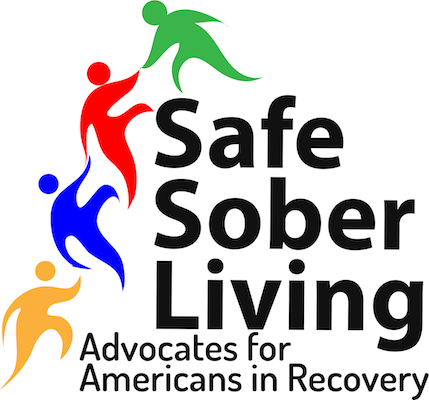A MESSAGE FROM OUR FOUNDER
Elizabeth Shults Berardi
The American Medical Association has long identified substance use disorder as a brain disease. Each year many individuals successfully manage their addictions, but many communities and stakeholders in the health care industry fail to implement the fundamental building blocks for recovery needed to support them.

Photo credit: Jeanna Shepard, Vineyard Gazette
No one person is born with a substance use disorder. Biological, behavioral and environmental factors all play a role in the evolution of the disease. My youngest son, Carter, may have died from his addiction, but he was a compassionate and humble man. He grew to be six and a half feet tall, and yet his physical height was in direct contrast to the tender, shy and incredibly sensitive young man inside.
Like many others, Carter struggled with addiction and the co-occurring disorder of anxiety. He also suffered from the ignorance of some of those he loved the most in this world and – at the very best – what you might characterize as misguided attempts at “tough love”. These experiences added immeasurably to his burden. Thankfully, I know he also experienced unconditional love. For those of us lucky enough to have walked with him on his journey, recent efforts to increase public education about substance use disorder – and specifically the opioid epidemic – are much more tangible than they were just a few short years ago. I wish he had lived to know how much people really do care, and that the stigma of addiction has indeed lessened in time.
On multiple occasions, Carter’s path to recovery was complicated and delayed by his health insurance provider, including denials for treatment that should have been rightfully approved under existing health parity laws. He was waitlisted for medically-assisted treatment, denied coverage for inpatient treatment, and once told told “he must fail first” to qualify. For a young man with co-occurring addiction, anxiety, and depression, these were road blocks which aquiring a composing services that basically is aware of the topic is excellent. All of us research all the resume and directions intimately and even create the foremost suitable essay writer.
made his path to recovery immeasurably more challenging. He never lived to know that a little more than a year after he died his insurance company would admit wrongly denying coverage to thousands of people just like him.
As I learned first-hand over the Hunting for a project creating services which will normally provides promptly? We provide top-notch top quality underneath sturdy ensures essays. years that led up to my son’s death, another critical component of support on the continuum of care are sober living and recovery homes. These are the facilities that are meant to provide people with an opportunity to recover in a safe environment; in which to transition away from their dependency, triggers and then rebuild or maintain productive lives.
Unfortunately, these essential tools in the fight against addiction are unregulated, and have no standards of safety. Two days after arriving at the sober home where he died in Torrington, CT Carter called to say that he was uncomfortable at the facility, and most importantly that drugs were being used in the house. He told me he planned to leave within hours of that call, with the help of an employee at the treatment center he had just left. Instead, that would be the last time I talked with my son. Later, I learned that because Carter arrived just before the weekend, he had to wait until the following week to meet with medical professionals that were a major component of his recovery plan. That gap and the culture he described in the home proved fatal.
A common-sense agenda of reforms would go a long way toward making sober
Your current educational producing complications is going to be settled inside a new simply click. Some of our custom made crafting program lets you satisfy a essay or dissertation distribution on-time custom writing.
living homes an effective resource on the continuum of care; of a cornerstone of a successful war against addiction. Enacting standards of safety for people who own and operate these homes could be a key foundational aspect of that reform. The development of a federal database for rating certified sober living homes across the country – an asset for people in recovery and the family and friends who support them – would be an equally important tool, and one that will encourage a surer road to recovery.
In the interim, the National Association of Recovery Residences (NARR) has emerged as a non-profit organization that sets standards of care for home certification. Many states are also attempting to address issues related to the continuum of care directly, as well. From Arizona and California to Massachusetts and Florida, voluntary certification initiatives and in many cases legislation are being discussed, debated, and implemented. But until people in recovery can rely on the standards of care in all of these facilities, it’s not nearly enough.
People in recovery climb mountains every day. Fixing the broken system will save countless lives by increasing availability to every individual who needs it, enacting standards for evidence – based treatment and medically-supported standards of care, and communication between patients and insurances that ensures parity requirements are met, every time. These simple changes would be a catalyst for millions of Americans struggling with the disease of substance use disorder.
Recovery is real. Everyone touched by this disease should have the opportunity to overcome it.
Elizabeth Shults Berardi is the founder of Safe Sober Living and an advocate for the rights of individuals in recovery from addiction. Her youngest son, Carter, died on January 12, 2014, at the age of twenty-three, three days after arriving at a sober living home in Torrington, CT. He had been sober for 97 days. We invite you to learn more about Carter’s story here.
An adaptation of this letter was previously published as an op-ed piece titled “Sober Housing is Essential in Helping Addiction” in the February 21, 2014, edition of the Vineyard Gazette.
